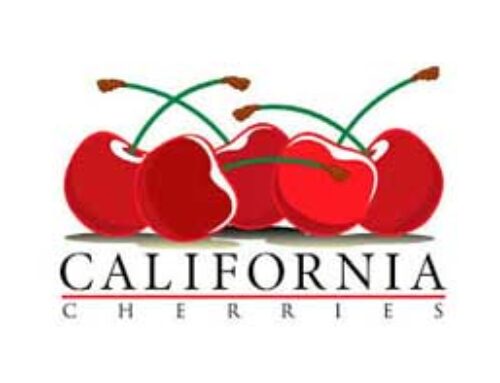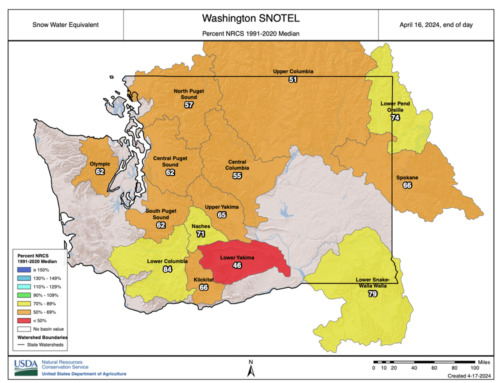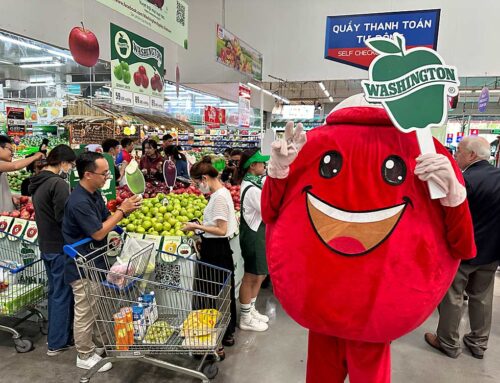
Kevin (left) and Mark Stennes have different, but complementary personalities. Mark is in charge of their orchards while Kevin manages sales and accounting.
While they were growing up, twins Kevin and Mark Stennes already shared the goal of taking over the family orchard.
“Agriculture is in our blood,” said Kevin, who with his brother is the fourth generation to run the orchard.
The original Stennes orchard in Washington’s Methow Valley was established by their great grandfather Britanus Stennes, who homesteaded there in 1894. Their father, Keith, took over the operation from their grandfather in 1966.
Keith recognized when the twins were still young that they were likely to become fruit growers. When they were 11 or 12 years old, as soon as they got home from basketball games they would pick up copies of the Good Fruit Grower to read.
Through high school and college, they spent their spare time working in the orchard. They did their last two years of high school at Wenatchee Valley College in the Running Start program and earned associate degrees in tree fruit production in 2001. Kevin also earned an associate degree in business information technology.
That was a tough time in the apple industry because of low returns, but the twins refused to be swayed from their goal. With the encouragement of their father, who felt business know-how was just as important as horticultural skills, they both went on to earn bachelor’s degrees in business from Central Washington University in 2005. Mark has a specialization in supply chain management. They returned full time to the orchard in 2005, when the profitability of the apple industry was on the upswing.
The twins, now 28, split the duties, with Mark in charge of the orchard operations and Kevin managing the packing and selling of their fruit. It’s an arrangement that suits their different, but complementary, personalities and skills. Kevin, a detail person, loves crunching numbers and establishing relationships with buyers and brokers, while Mark excels at horticulture and finds rewards in managing the whole fruit-growing process from pruning to harvest.
Organics
In the late 1980s, Keith had started to replace his Red and Golden Delicious apples and replant with niche apple varieties and pears. In the mid-1990s, he began transitioning acreage to organic. It was an effort to improve returns, but he found he soon grew into the organic mindset.
They now farm 300 acres of pears, apples, cherries, plums, and Pluots, up from about 80 acres of fruit in 1998, and produce 22 different varieties. More than a third of their production is organic.
To maximize their profits, they pack and sell about 25 to 30 percent of their fruit themselves, focusing on the niche fruit that has the potential to sell for a premium. For example, Kevin sells organic Amber Jewel plums to an upscale retail chain in Seattle that takes their entire crop.
They have their conventional fruit custom packed at the Apple House in Brewster under their Twin S label and the organic packed by Pacific Organic in Wenatchee under their Cascade Crest label.
The rest of their production—mainly commodity varieties—goes to five warehouses in north central Washington for packing and marketing. Some are independents and some cooperatives. The Stenneses try to match the different varieties of fruit with the strength of the packer. “If the fruit all went to one warehouse, it would cut our revenue by 15 to 20 percent,” Kevin estimates.
There are three reasons they like to sell some of their fruit themselves:
- They don’t have to pay someone else a brokerage fee.
- They get paid for the fruit within a month instead of in 3 to 12 months.
- By establishing good relationships with the retailers, they’re able to sell at the high end of the market.
- But it also depends on putting a good-quality product in the box, Kevin said. “I could not do a good marketing program without good fruit to market.”
Kevin makes frequent trips to Seattle to meet with buyers and do in-store demonstrations and sampling. High-end retailers, such as Whole Foods, like to provide information about growers or feature them in person.
Having a limited volume of each variety to sell eases the pressure, Kevin said. “I don’t have to take every sale I can get. I can be selective. I don’t want to take those low sales.”
Leases
About half of their orchard holdings are leased, some from local growers who reached retirement age but had no successor. Most of those are apples. They’re planting more pears on their own acreage because it’s in a good pear-growing location, and next year will plant 18 more acres of Early Robin and Santina cherries to provide existing customers with an earlier cherry supply. Although Pateros is not one of the earliest districts in the state, the Early Robins matured on June 16 this year, which is well before the peak of the season.
Mark said leasing orchards is a good option for them. Land prices are high in the picturesque Methow Valley because of the development potential. An advantage is they can lease orchards without a long-term commitment or mortgage, but the downside is they’re not building equity for the future.
The twins, who each have a young son and daughter, strive to be good stewards of the orchard that has been passed down from their great-grandfather in the hope that it will endure for several more generations to come. They are also involved in the industry and community and try to give back through volunteer work.
Mark is a board member of the Washington Growers Clearing House Association, as was his father. Kevin is a board member at Blue Bird, Inc., their main warehouse, and serves on the agriculture advisory board of Wenatchee Valley College, the Washington Cherry Marketing Committee, and the North Central Washington Economic Development District.






Leave A Comment